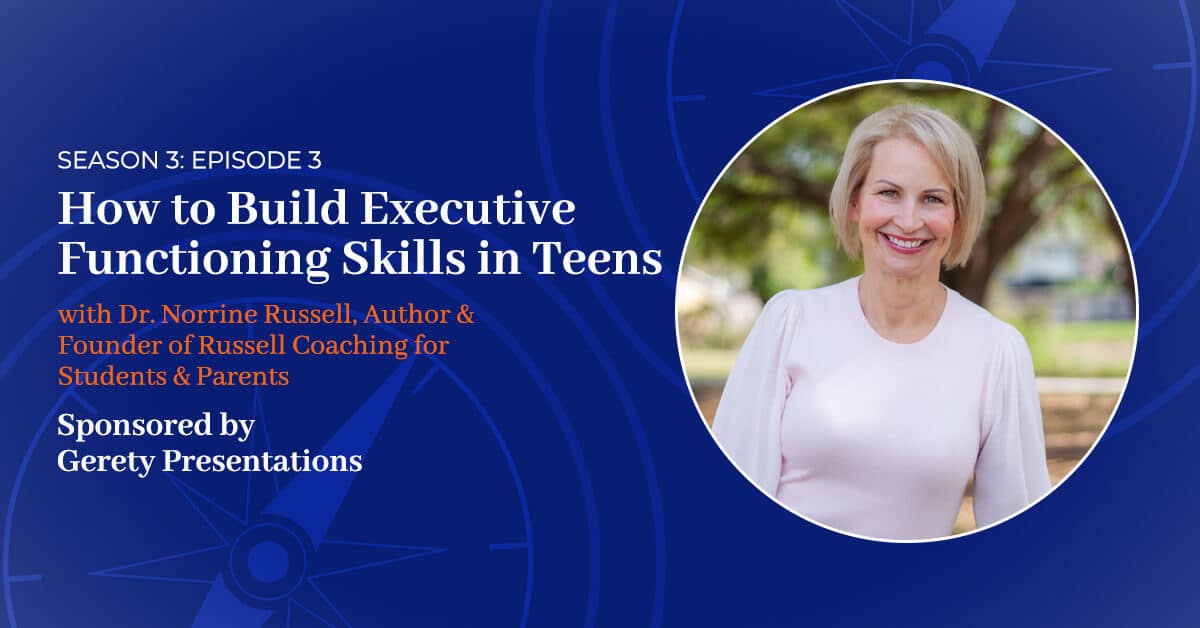Dr. Norrine Russell uses an innovative method of coaching for complex students including those who have ADHD, Autism, Anxiety; and those who have learning differences. Dr. Russell has a Ph.D. from Bowling Green State University, with a focus on psychology and education. Dr. Russell’s passion for providing support to frustrated teens and weary parents is fueled not only by her professional training and expertise but also by her own experience of raising two complex children.
Key Takeaways
- Executive functioning skills are crucial for teens to become the CEO of their life, skills that help them be in charge, and reach their goals. Time management, self-motivation, task initiation, task completion are all skills that are essential to a teen’s success, however they are not always modeled or coached for them.
- To help teens gain these skills, it’s important to start from a place of empathy and sharing, and guide them to take small steps towards their goals. Sit with them to encourage them, however, do not do the work for them. Let them take on the personal responsibility of managing the task at hand.
- As a parent, our role is to coach them and help them decide what works best for them in accomplishing their goals. There is not a one-way of doing something and your teen may have a different approach than you do. Listen to understand.
- Have your teen identify what their three top priorities are and have a conversation with them about how they want to go about accomplishing their goals. Next you can talk about their smaller goals to help them think through time management, task initiation, and task completion. Map time management on a calendar so they see visually the action steps they need to take.
- We often assume that the executive skills our teens need are something they picked up along the way and know how to do. Some teens do, however there are teens who have not yet learned these skills and that’s developmentally appropriate. We need to teach, coach, and praise them on their ability to learn these important skills just as we did when we taught them to tie their shoes.
- Approach conversations with your teen in a calm and curious way. They learn through your modeling. If you are managing your time and completing tasks in an organized and calm way, they will inherit your skills.
- Teens with learning differences can be delayed in their development to learn and practice these skills. Be patient, provide more support, and recalibrate your expectations. Give them time to become proficient in these new skills.




